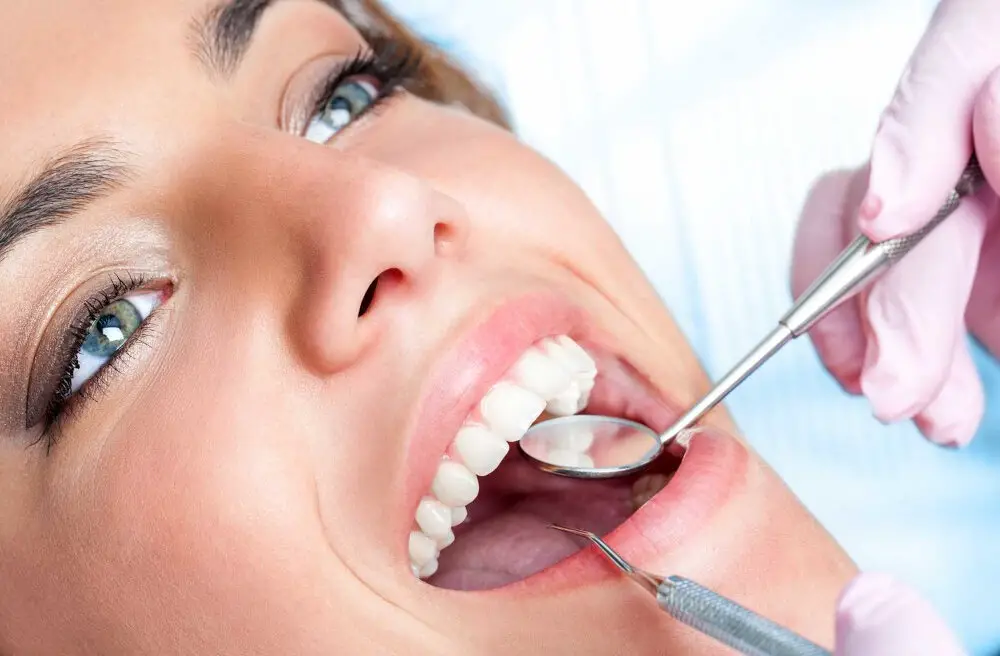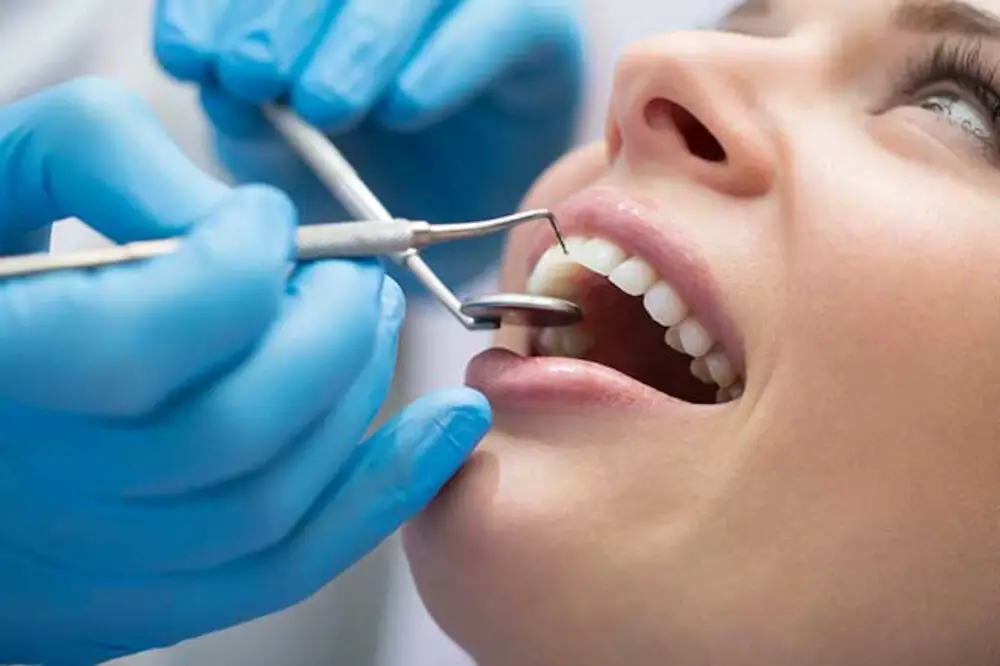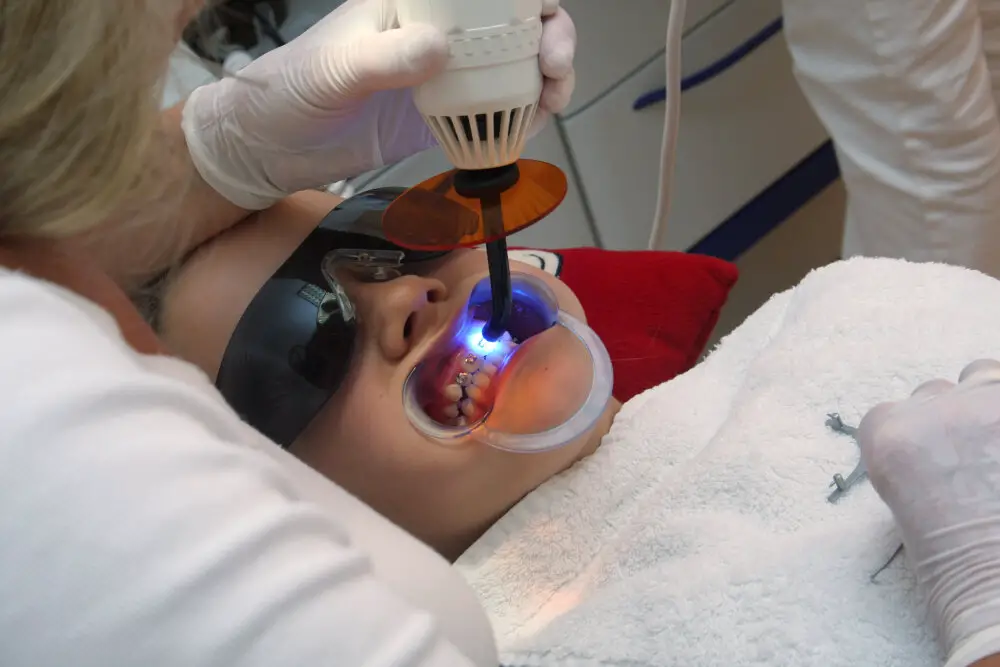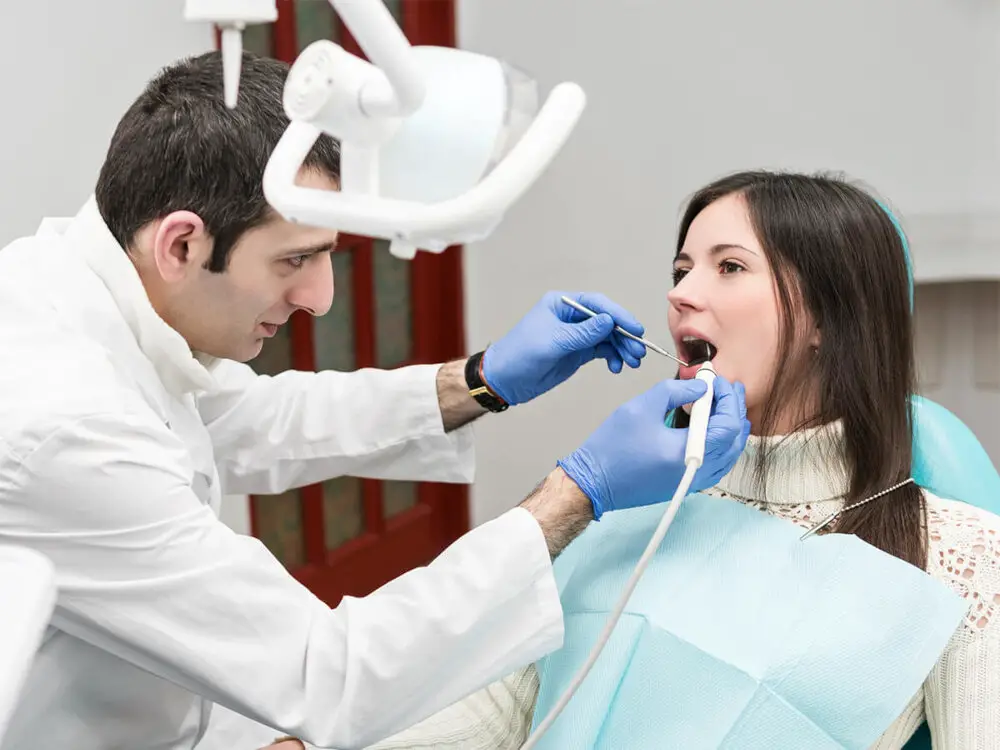Say Goodbye to Tartar: A Comprehensive Guide on Removing Tartar from Your Dog’s Teeth

Oral hygiene is a crucial aspect of a dog’s overall health and wellbeing. Tartar buildup on their teeth can lead to various dental problems, including gum disease, tooth decay, and bad breath. As a responsible pet owner, it is essential to take care of your furry friend’s teeth regularly. This comprehensive guide on removing tartar from your dog’s teeth will provide you with all the information you need to keep your pet’s oral health in check. Tartar buildup occurs when plaque, a sticky film of bacteria, hardens on the teeth. It can be challenging to remove tartar once it has formed, and it requires professional dental cleaning. However, with proper oral hygiene practices, you can prevent tartar buildup and maintain your dog’s dental health. This guide will cover everything from identifying tartar buildup to the best ways to remove it, along with tips on how to take care of your dog’s teeth at home. By following the advice in this guide, you can ensure that your furry friend’s teeth stay healthy and strong for years to come.
Tartar buildup on a dog’s teeth is a common dental problem that can lead to serious health issues if left untreated. When a dog’s teeth are not properly cleaned, leftover food particles and bacteria can accumulate and form a sticky film called plaque. Over time, this plaque hardens into tartar, which cannot be removed by brushing alone. Tartar buildup can cause bad breath, gum disease, and tooth decay, and may even lead to more severe health problems such as heart disease and kidney failure. Regular dental checkups and cleanings, as well as proper at-home dental care, can help prevent tartar buildup and keep your dog’s teeth and overall health in top condition.
Removing tartar from your dog’s teeth is crucial for their overall health. Tartar buildup can lead to various dental problems, such as gum disease, tooth decay, and bad breath. If left untreated, these issues can result in pain and discomfort for your furry friend, which can negatively impact their quality of life. Moreover, tartar buildup can also affect other parts of your dog’s body, such as their kidneys, liver, and heart. Therefore, regular dental care, including brushing, regular check-ups, and professional cleaning, is essential for maintaining your dog’s health and happiness. By taking care of your dog’s teeth, you can ensure that they live a long, healthy, and pain-free life.
Signs of Tartar on Your Dog’s Teeth

Tartar buildup on your dog’s teeth can lead to bad breath, gum disease, and even tooth loss. It’s important to keep an eye out for signs of tartar buildup so that you can take action before it becomes a serious problem. One of the most obvious signs of tartar buildup is discoloration on your dog’s teeth. Tartar is usually yellow or brown, so if you notice any discoloration on your dog’s teeth, it’s likely that tartar is present. Additionally, if you notice that your dog’s teeth are becoming more difficult to clean, it’s likely that tartar is building up. Tartar can make it difficult to brush your dog’s teeth effectively, which can exacerbate the problem over time. Another sign of tartar buildup is bad breath. If your dog’s breath has a strong odor, it’s possible that tartar is present. As tartar builds up on your dog’s teeth, it can begin to smell foul, which can cause your dog’s breath to smell bad as well. If you notice that your dog’s breath is becoming increasingly unpleasant, it’s a good idea to take a closer look at their teeth to see if tartar is the culprit. In addition to bad breath, gum disease is another potential consequence of tartar buildup. If you notice that your dog’s gums are becoming red or swollen, it’s possible that tartar buildup is causing inflammation and irritation. Left untreated, gum disease can lead to tooth loss and other serious health problems, so it’s important to address the issue as soon as possible.
Discoloration or yellowing of teeth is a common dental issue that affects both humans and dogs. It can occur due to various reasons, including poor oral hygiene, aging, genetics, and certain medications. In dogs, yellow teeth can also be a sign of tartar buildup, which can lead to more severe dental problems if left untreated. Fortunately, there are several ways to combat yellowing teeth, including proper brushing, regular dental check-ups, and a healthy diet. In some cases, professional teeth whitening treatments may also be necessary to restore a dog’s pearly whites. By taking proactive steps to maintain your dog’s dental health, you can help them avoid the discomfort and complications associated with yellow teeth and tartar buildup.
Bad breath, also known as halitosis, is a common issue among dogs, especially those with tartar buildup on their teeth. The bacteria that accumulate on the teeth and gums can cause a foul odor that can be quite unpleasant. In addition to being a nuisance, bad breath can also be an indication of underlying dental issues, such as periodontal disease, which can lead to tooth loss and other health problems. To combat bad breath in dogs, proper dental care is essential, including regular brushing and professional cleanings. A healthy diet and appropriate chew toys can also help keep your dog’s teeth clean and their breath fresh.
Difficulty eating or chewing is a common symptom of tartar buildup in dogs. As plaque hardens into tartar, it can create a rough surface on teeth that irritates the gums and causes inflammation. This can make it painful for dogs to bite down and chew their food, leading to decreased appetite and weight loss. In severe cases, tartar buildup can even lead to tooth decay and tooth loss, making it even more difficult for dogs to eat and enjoy their meals. Regular dental care, including brushing and professional cleanings, can help prevent tartar buildup and keep your furry friend’s teeth healthy and pain-free.
Prevention of Tartar Buildup

Prevention of tartar buildup is the key to maintaining your dog’s oral health. Tartar is a hard deposit that forms on the teeth as a result of plaque buildup. Plaque is a sticky film that forms on the teeth and contains bacteria that can cause gum disease and tooth decay. Tartar buildup can lead to bad breath, tooth loss, and other serious dental problems. To prevent tartar buildup, it is important to establish a regular dental care routine for your dog. One of the most effective ways to prevent tartar buildup is to brush your dog’s teeth regularly. Use a soft-bristled toothbrush and a toothpaste that is specifically designed for dogs. Brush your dog’s teeth at least once a day, if possible, but at least three times a week. You can also use dental chews and toys that are designed to help clean your dog’s teeth and massage their gums. Additionally, a healthy diet can help prevent tartar buildup. Choose high-quality dog food that is low in sugar and carbohydrates. Avoid feeding your dog table scraps or human food, as these can contribute to plaque buildup and tartar formation. With these simple steps, you can help keep your dog’s teeth clean and healthy, and prevent the buildup of tartar.
Regular brushing of teeth is an essential part of maintaining good oral hygiene not only for humans but also for dogs. It helps to remove plaque, which is a sticky film of bacteria that forms on the teeth and gums. When left unattended, it hardens into tartar, causing gum disease, tooth decay, and bad breath. Tartar buildup can also lead to more severe health problems such as kidney disease or heart disease. By brushing your dog’s teeth every day, you can prevent tartar buildup and keep their teeth and gums healthy. Make sure to use a toothbrush and toothpaste specifically designed for dogs, and start brushing gradually to get your dog used to the process.
Providing dental chews or toys is a crucial step in maintaining a healthy dental routine for your furry friend. These products are specifically designed to help reduce tartar buildup and promote good oral health. Dental chews and toys work by mechanically scraping away plaque and tartar from the teeth, while also strengthening the muscles in the jaw. Additionally, many of these products contain natural ingredients such as enzymes, which further aid in the prevention of tartar buildup. Regularly offering dental chews or toys can not only improve your dog’s oral health but also provide them with a fun and stimulating activity. When choosing a dental chew or toy, be sure to opt for a product that is appropriately sized for your dog’s breed and always supervise them during use.
Regular professional dental cleanings are essential for maintaining your dog’s oral health. Tartar buildup is a common problem that can lead to dental disease and other health issues. During a professional cleaning, a veterinarian or dental hygienist will remove tartar and plaque from teeth using specialized tools. They will also assess the overall health of your dog’s mouth, looking for signs of gum disease or other dental problems. Professional cleanings are typically recommended once a year, but may be needed more frequently for dogs with severe tartar buildup or other dental issues. By staying on top of your dog’s dental health with regular cleanings, you can help prevent costly and painful dental problems down the road.
Natural Remedies for Removing Tartar

Tartar buildup on your dog’s teeth can lead to serious dental problems, such as gum disease and tooth decay. While professional cleaning at the veterinarian’s office may be necessary in severe cases, there are natural remedies that can help remove tartar from your dog’s teeth. One effective remedy is coconut oil. Coconut oil is rich in lauric acid, which has anti-inflammatory and antimicrobial properties that can help fight off bacteria in the mouth. By applying a small amount of coconut oil to your dog’s teeth and gums daily, you can help prevent tartar buildup and promote overall dental health. Another natural remedy for removing tartar is apple cider vinegar. Apple cider vinegar is a natural disinfectant that can help kill the bacteria that cause tartar buildup. To use apple cider vinegar as a tartar remover, dilute it with water and use a cotton swab to apply it to your dog’s teeth and gums. Be sure to rinse your dog’s mouth with water afterwards to prevent any irritation. With consistent use, apple cider vinegar can help keep your dog’s teeth clean and healthy, reducing the risk of dental problems down the line.
Coconut oil pulling is a natural remedy that has been gaining popularity in recent years for its potential benefits in promoting oral health. This practice involves swishing a tablespoon of coconut oil in your mouth for 10 to 20 minutes and then spitting it out. It is believed that the lauric acid in coconut oil can help remove harmful bacteria and prevent plaque buildup on teeth, which in turn could reduce the risk of tartar formation. While there is limited scientific evidence to support these claims, many individuals have reported positive results from incorporating coconut oil pulling into their dental hygiene routine. However, it is important to note that this practice should not be used as a substitute for regular brushing and dental check-ups.
Apple cider vinegar rinse is a natural and effective way to remove tartar from your dog’s teeth. It contains acetic acid, which helps break down the buildup of plaque and tartar. To make the rinse, mix one part apple cider vinegar with two parts water and use it to rinse your dog’s mouth after meals. The vinegar also has antibacterial properties that can help prevent future tartar buildup. However, it’s important to use the rinse in moderation as overuse can damage the enamel on your dog’s teeth. Additionally, make sure your dog doesn’t swallow the rinse as it can upset their stomach. Overall, incorporating apple cider vinegar rinse into your dog’s dental care routine can help promote healthy teeth and gums.
Baking soda and hydrogen peroxide paste is another effective method to eliminate tartar from your dog’s teeth. Baking soda, also known as sodium bicarbonate, is a mild abrasive that can remove stains and plaque from your dog’s teeth. Hydrogen peroxide, on the other hand, has antibacterial properties that can kill the bacteria responsible for tartar buildup. To make the paste, mix one tablespoon of baking soda with one teaspoon of hydrogen peroxide until it forms a paste-like consistency. Apply the paste to your dog’s teeth using a toothbrush or your fingers and leave it on for a few minutes before rinsing it off. This method should be used with caution as excess use of hydrogen peroxide can damage your dog’s teeth.
Professional Treatment Options

When it comes to removing tartar from your dog’s teeth, professional treatment options are often the most effective. One of the most common professional treatments is dental scaling and polishing. This procedure involves a veterinarian using specialized tools to remove tartar and plaque buildup from your dog’s teeth, followed by a thorough cleaning and polishing to leave their teeth looking and feeling great. Dental scaling and polishing is typically done under general anesthesia to ensure your dog remains calm and relaxed throughout the procedure. Another professional treatment option for removing tartar is dental surgery. In some cases, tartar buildup may have extended beneath the gum line, causing more serious issues such as periodontal disease. In these cases, dental surgery may be necessary to remove the affected tissue and promote healing. This type of treatment is typically done by a veterinary dentist, who will work closely with your regular veterinarian to ensure the best possible outcome for your dog’s oral health. While dental surgery may be more invasive than other treatment options, it can also be highly effective in restoring your dog’s oral health and preventing further complications in the future.
Scaling and polishing by a veterinarian is a crucial procedure for maintaining your dog’s dental hygiene. This process involves removing the tartar that accumulates on your dog’s teeth, which can cause bad breath, gum disease, and tooth decay. The veterinarian will use specialized tools to remove the tartar, and then polish your dog’s teeth to prevent further build-up. This procedure is essential for preventing serious dental problems and keeping your dog’s teeth healthy and strong. Regular scaling and polishing by a veterinarian is recommended to ensure that your dog’s teeth remain in optimal condition. With proper dental care, your furry friend can enjoy a happy and healthy life.
Dental surgery may be necessary for dogs with severe tartar buildup or periodontal disease. During a dental surgery, the veterinarian will clean the dog’s teeth thoroughly, removing any tartar and plaque buildup. In some cases, teeth may need to be extracted if they are severely damaged or infected. While dental surgery may sound scary, it is often the best course of action for a dog’s overall health and well-being. After surgery, the dog will need to be monitored closely and may require pain medication and a soft food diet while they heal. Regular dental care and cleanings can help prevent the need for dental surgery in the future.
Tartar can lead to serious health problems for your furry friend. As tartar accumulates on your dog’s teeth, it can cause inflammation of the gums, which can eventually lead to periodontal disease. This can cause tooth loss, infections, and even damage to internal organs such as the heart, liver, and kidneys. By removing tartar from your dog’s teeth, you can help prevent these serious health issues from occurring. Regular brushing, using dental chews, and visiting the veterinarian for professional cleanings can all help keep your dog’s teeth clean and healthy. Don’t underestimate the importance of good dental hygiene for your pet’s overall health and well-being.
Regular dental care and checkups for our furry friends are crucial for their overall health and well-being. Not only do healthy teeth and gums prevent bad breath and discomfort, but they can also help prevent more serious health issues such as heart and kidney disease. While daily brushing and dental chews can help maintain a healthy mouth, professional cleanings and checkups with a veterinarian are essential to catch any potential dental issues early on. So, let’s make a commitment to our furry friends’ dental health and schedule those regular checkups to ensure they have a happy and healthy smile for years to come.
Conclusion

In conclusion, maintaining good oral hygiene for our furry friends is crucial to their overall health and well-being. Tartar buildup can lead to various dental and health issues, but with the comprehensive guide we have provided on removing tartar from your dog’s teeth, you can take proactive steps towards preventing these problems. Regular brushing, dental chews, and professional cleanings are all effective ways to keep tartar at bay. Remember, prevention is always better than cure, so start implementing these tips today and say goodbye to tartar for good!







